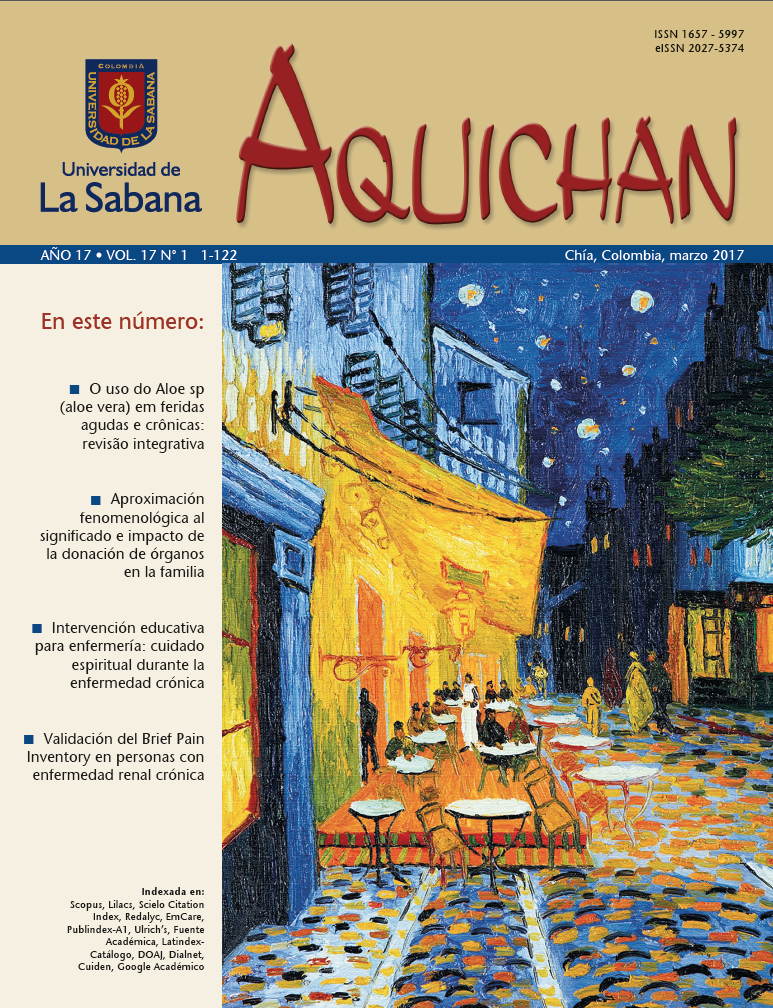Phenomenological Approach to the Meaning and Impact of Organ Donation in the Family
Keywords:
Obtaining tissue and organs, qualitative research, meaning, affliction, griefAbstract
Organ donation is a critical event after the loss of a loved one. Spain, despite being the country with the highest donor rate in the world, still maintains a family negative rate of 15.56% . Objective: Know and analyze the impact of organ donation based on its meaning for the family in the Spanish context. Materials and method: This is a phenomenological qualitative study based on Giorgi’s conceptual framework and method. Eleven families who had donated organs at the Hospital La Fe in Valencia were interviewed in depth, following at least three years of mourning since the loss of a loved one. Results: After the results were analyzed, twenty-seven units of meaning were described and classified as relative to the loss and relative to the organ donation. They were then correlated. Conclusion: Organ donation appears to be a relief mechanism or a kind of compensation for the death of a family member.
Downloads
Published
How to Cite
Issue
Section
License
1. Proposed Policy for Journals That Offer Open Access
Authors who publish with this journal agree to the following terms:
- The journal and its papers are published with the Creative Commons License Attribution-NonCommercial-NoDerivatives 4.0 International (CC BY-NC-ND 4.0). You are free to share copy and redistribute the material in any medium or format if you: give appropriate credit, provide a link to the license, and indicate if changes were made; don’t use our material for commercial purposes; don’t remix, transform, or build upon the material.





